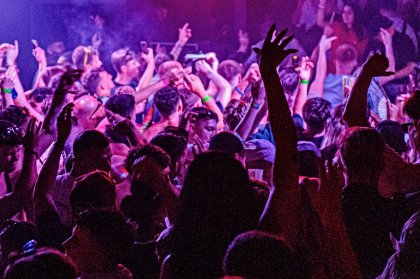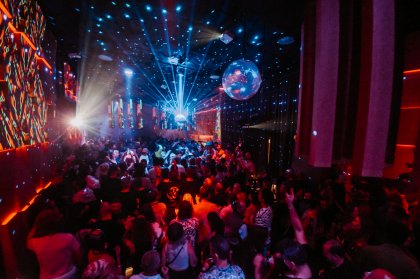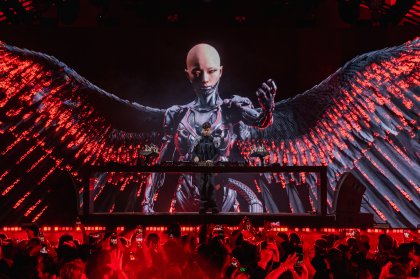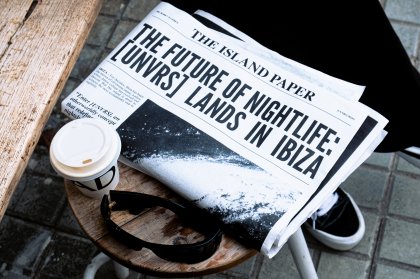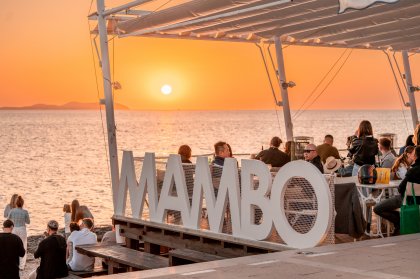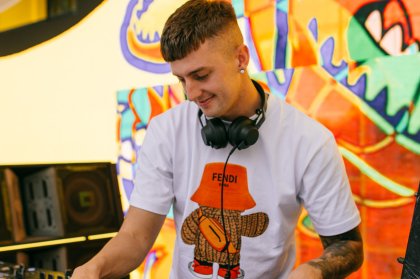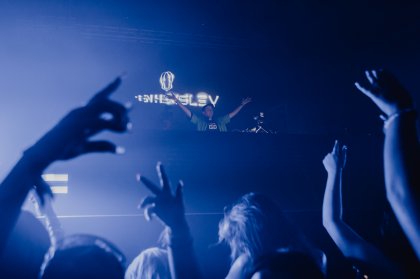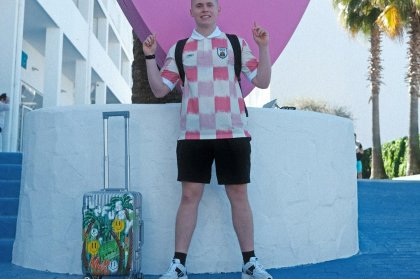Label Spotlight - Exone
Who's in charge? Exercise One (AKA Marco Freivogel and Ingo Gansera)
When was it born? 2008
Where is it based? Berlin, Germany
blog.exerciseone.de
facebook.com/exerciseone
Notes: Far from the most prolific imprint in the world, work from Dave Vega, Seth Troxler, Peter Van Hoesen, David E Sugar, and Lee Burridge (with the latter two appearing alongside bossmen Exercise One) proves that quality, not quantity matters in the end. That the two head honchos also make up an incredible live act only gave us more to talk about.
Marco Freivogel on running Exone…
For those still unacquainted, how did the label begin?
Well we first set it up more as a bootleg thing really, with collaborative work. For example one was with David E. Sugar; we did a remix for him and the label wasn't totally happy with it. We loved it, and it was well received, so then we put it out as a one sided record.
Then another was with Lee Burridge, which was also a remix for him. Amato, the UK vinyl distributor, went bust and it impacted on his label, so he couldn't release it but wanted to. So we said ‘OK, that fits perfectly as the second release'. So really it was chaotic at first, then we also took a step back to concentrate on the Exercise One album.
But even when we were working on that there was always all this music that we loved around the studio here from the other people we share the space with. Stuff that was a bit more unique, and maybe a little scarier for DJs- not loop based but made on machines with lots of analogue, so we knew it would continue from there.
Is there an overall plan of where things are going, or do you just let things happen naturally?
Yeah, it's quite natural, but then we do look for some things. Now we're trying to make sure we have a vinyl only release that's different to the digital, which has to be even more open minded- ambient or whatever. Today it's hard if you want to get some attention, you have to have something that's playable, obviously.
We're not a label that puts things out in albums, we do singles and EPs, but we ask the artists to do something only for vinyl and go outside the usual borders, you know, to make it more special.”
Is that not quite risky with the cost of pressing vinyl and dwindling sales?
Yeah, there's always a risk involved. But we don't do huge runs, it's between 200 and 300 pieces maximum, so it's very small in terms of overheads really. To be honest now I feel more comfortable than when distributors used to say ‘OK, let's do 1,500', and then you only sold 800.
What's difficult is that it takes so long until everything is ready to go. A track will be months before it finally is available to buy, but after working for many years in this industry I'm used to that really.
You also set up Lan Music back in 2005. What lessons have you learnt in the last seven years of label management?
Well a lot of it has been to do with trusting other people. Nobody's fault really, but today I'm a bit wiser with that and much more careful when it comes to who we deal with, and I'm willing to ask more questions.
I worked at !K7 years ago, and so I have some label experience. With Lan Music we still got in when vinyl sales were relatively healthy, and had some great experiences at the beginning, but very bad ones in the end. That had a lot to do with not asking, not learning enough, and trusting too much. In the end we paid the price, which wasn't great.

Marco Freivogel on producing and Berlin…
You've described live sets as fundamental to being a great producer. Do you have to play in a club to be a great producer?
I think it helps yes. Especially for our kind of stuff, you know, as Exercise One. We just did a premier of our new set up at Panorama Bar, and we have stopped using computers, as now there are some amazing machines that are really powerful.
So now we're thinking of recording a studio session, maybe 16 tracks, like that, with hardly any editing- maybe a little EQing and limiting- and just catch the moments. I'm a big believer in the first take having something really special about it, which is hard to recreate or re-produce. And we really want to include elements that make it obviously a live recording. In April we will start our first productions, and maybe do three like that.
There's another quote we found where you guys described an Exercise One live set as “like driving a car named techno off a cliff, into the sea of endless possibilities”. Explain?
Haha… yeah, er… well it's just about having fun, really. You play loud, then forget about where the street ends. When you play like we do it's often the case that we look at each other and just think ‘holy fuck, what are we doing now… the street ends!'
But a lot of the time those are the moments when people appreciate it the most. Maybe you make a mistake or whatever, but it always feels good, and real. It's great to be able to say that we can never say ‘this is how we play' because every time it's a different show. That's what I love about it. We stopped for a while last year, because we both think it's not good to keep doing something all the time- you don't want to play it until it's dead, especially as it's the centre of what we do.
How important is working in a diverse range of genres to a producer's ability to make great house and techno?
For me it's very important. But then so is having a musical identity so people know it's your work. Then there's the media too, who are always putting people in categories so it's difficult to move away from that, meaning if you come out with something too extreme it can be bad.
Really though it's good to show once in a while that you enjoy different sounds. A lot of producers, and a lot of successful producers, are doing that now, and listeners are open to it, which is great.
You've lived in Berlin for many years, has it lost anything with the influx of ‘creative types' to the city over the last decade or so?
I mean there was a big change, with lots of people moving here to pursue music, and other areas of the arts. But I think that added a lot so there's such a big exchange on the weekend when everyone goes out, which can be a real benefit to anyone who wants to further themselves through that. The only thing is the whole rave city, tourism thing.
But then we're making a living from it, and are happy about that. And last year we only played in Berlin a few times, and they were all great- only positives for me. Then on the other side, how the Government and politicians want to change the city is not very good, at all, but that's really another point altogether.
They want to try and make it more conservative, and they want their gardens and quiet. So for this reason I am happy so many more artists are still moving here as maybe we can try and do something to stop it. It has been going on for a while, where the Government want to make things in Berlin more transparent.
It used to be a perfect place to do crazy things, so many networks, but then there was also big criminal parts. The problem is that in cleaning things up they build glass buildings that stand empty as nobody has any money to live or set up a business in them, but at the same time they tear down some really nice things.

